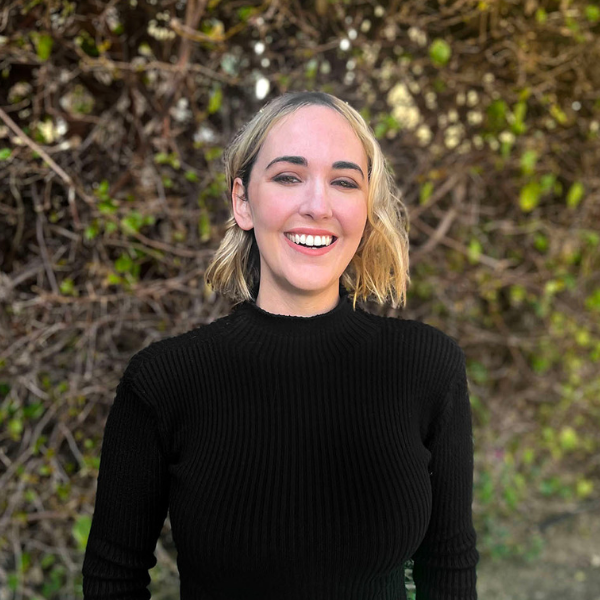INSIGHTS FROM A TRAUMA THERAPIST IN LOS ANGELES
5 Powerful Strategies to Heal from Trauma & Reclaim Your Life: Pt 2
If you’re here, it means you’re ready for more more strategies to reclaim your life from the grip of trauma. In Part 1, I shared some solid steps to get you started. Now, let’s dive into Part 2. As a trauma therapist in Los Angeles, I’ve seen these methods work wonders. Remember, it’s all about progress, not perfection. Every small step counts and gets you closer to your authentic self. Whether you’re grappling with anxiety, attachment struggles, or the effects of CPTSD, these strategies will help you move forward with confidence. Let’s get into it and turn that pain into power. Ready to take the next step?

INSIGHTS FROM A TRAUMA THERAPIST IN LOS ANGELES
1. Engage in Physical Activity
Engaging in physical activity is not just good for your body but also your mind. Exercise releases endorphins, which are natural mood lifters that can significantly improve your emotional well-being. Whether it’s yoga, running, swimming, or dancing, find an activity you enjoy and make it a regular part of your routine. As a trauma therapist in Los Angeles, I often recommend physical activity to my clients as a way to help manage anxiety and stress.
Physical Activity for Trauma Healing in Los Angeles
Physical movement helps release built-up tension and stress from your body, aiding in the healing process. It’s about moving in a way that feels good and helps you reconnect with your body. Regular exercise can reduce symptoms of anxiety and depression, improve sleep quality, and boost overall mood. It’s a natural and effective way to manage the emotional aftermath of trauma.

INSIGHTS FROM A TRAUMA THERAPIST IN LOS ANGELES
2. Explore Creative Outlets
Creative expression can be incredibly therapeutic. Activities like painting, writing, music, or any other form of art can help you process your emotions in a non-verbal way. Creativity allows you to explore your feelings and experiences in a safe and controlled manner, providing an outlet for emotions that might be difficult to express otherwise.
The Power of Creativity
Engaging in creative activities can help you tap into parts of your mind that are often unreachable through words alone. It’s not about creating a masterpiece but about expressing yourself and finding relief through the process. As someone dealing with trauma, you might find that art and creativity offer a new way to understand and work through your experiences.
Practical Ways to Get Started With Trauma Therapy in LA
Start small with something you’re curious about. Whether it’s doodling, journaling, or playing an instrument, give yourself permission to create without judgment. Remember, the goal is to explore and release, not to achieve perfection. Find what resonates with you and let it become a part of your healing routine. It’s like finger-painting for your soul, but without the mess.

INSIGHTS FROM A TRAUMA THERAPIST IN LOS ANGELES
3. Practice Self-Compassion
Healing from trauma is a journey with ups and downs, and it’s essential to be kind to yourself throughout this process. Self-compassion involves recognizing that you are doing your best and that it’s okay to have setbacks. Celebrate small victories and forgive yourself for the tough days. Treat yourself with the same kindness and understanding you would offer a friend.
Building a Supportive Inner Environment in Los Angeles
Self-compassion can create a supportive inner environment, making the healing journey smoother. By acknowledging your efforts and treating yourself gently, you reinforce positive behavior and resilience. This practice can be especially helpful for those dealing with attachment challenges and CPTSD.
Daily Practices for Self-Compassion
Incorporate small acts of kindness into your daily routine. This might include positive affirmations, taking breaks when needed, or rewarding yourself for small achievements. Over time, these practices can build a stronger, more compassionate relationship with yourself. Remember, even superheroes need a day off. Be your own superhero and give yourself some slack.

INSIGHTS FROM A TRAUMA THERAPIST IN LOS ANGELES
4. Learn to Set Boundaries
Setting boundaries is crucial for protecting your mental and emotional well-being. This means knowing when to say no and when to step back from situations or people that trigger your trauma. Boundaries help you create a safe space for yourself and prevent further emotional harm.
The Importance of Boundaries
Understanding your limits and not feeling guilty for protecting your peace is essential for healing. Clear boundaries can empower you and reinforce your sense of control. This is particularly important for those dealing with anxiety and trauma.
Practical Tips for Setting Boundaries in Los Angeles
Start by identifying what makes you uncomfortable or anxious. Communicate your needs clearly and assertively to those around you. It might feel challenging at first, but over time, setting boundaries will become a natural and empowering part of your life. Remember, it’s okay to prioritize your well-being. Think of it as creating a “No Drama” zone around yourself.

INSIGHTS FROM A TRAUMA THERAPIST IN LOS ANGELES
5. Stay Connected with Others
Isolation can exacerbate trauma symptoms, so it’s important to stay connected with supportive people. Whether it’s friends, family, or a support group, having a network of understanding individuals can provide comfort and validation. Sharing your experiences with others who get it can reduce feelings of loneliness and provide practical advice.
The Healing Power of Connection
Human connection is a powerful healer. Knowing you’re not alone can make a significant difference in your healing journey. Being part of a supportive community can help you navigate the challenges of trauma and CPTSD.
Ways to Build and Maintain Connections in Los Angeles
Reach out to trusted friends and family members regularly. Consider joining a support group or engaging in community activities. These connections can provide a sense of belonging and understanding, which are crucial for emotional healing. Remember, it’s okay to ask for help and lean on others when you need to. We’re all in this together, even if we’re all a bit of a mess sometimes.

INSIGHTS FROM A TRAUMA THERAPIST IN LOS ANGELES
Implementing These Strategies
Healing from trauma is not a one-size-fits-all process. It requires patience, persistence, and a willingness to try different approaches. Start with the strategies that resonate most with you and gradually incorporate others. Remember, it’s okay to take things one step at a time. Celebrate your progress, no matter how small, and be gentle with yourself on this journey.
Taking the First Step With Trauma Therapy in Los Angeles
Each small step you take towards healing is a victory. Be proud of your progress and continue to build on it. If you need more personalized guidance, don’t hesitate to reach out to a trauma therapist in Los Angeles. You don’t have to navigate this journey alone. With the right support and strategies, you can reclaim your life and find your inner strength. Ready to take the next step? Let’s make it happen!
Meet a trauma Therapist in Los Angeles
Meet Cheryl Groskopf, LMFT, LPCC
Hey there! I’m Cheryl Groskopf, your a trauma therapist inLos Angeles. My mission? Helping you take charge of your life by working through anxiety and trauma head-on. I’m all about using a direct and collaborative approach, making therapy a journey we navigate together. I focus on those of us who often put others first—people pleasers, perfectionists, you name it. If you’re struggling with anxiety in relationships or grew up with emotionally unavailable parents, I’ve got your back.
In my practice, I mix things up with holistic therapy, somatic therapy, and Internal Family Systems (IFS). Whether you’re dealing with trauma, anxiety, or attachment struggles, we’ll find the right path for you. My goal is to help you understand how your brain and body work together, breaking those subconscious patterns that keep you feeling “frozen.”
Need More Assistance? No Problem...
If you’re looking for more ways to support your mental health journey, here are some great local resources:
- Mental Health America of Los Angeles (MHALA)
MHALA offers a variety of mental health resources and wellness services, including outreach programs and support for veterans and youth in Los Angeles. - 211 LA County
211 LA is your go-to for accessing a range of mental health support services, crisis intervention, and referrals throughout Los Angeles County. - Los Angeles County Department of Mental Health – Alternative Crisis Response
Find immediate crisis response options like mobile crisis teams and psychiatric urgent care centers to get the help you need when you need it most.





